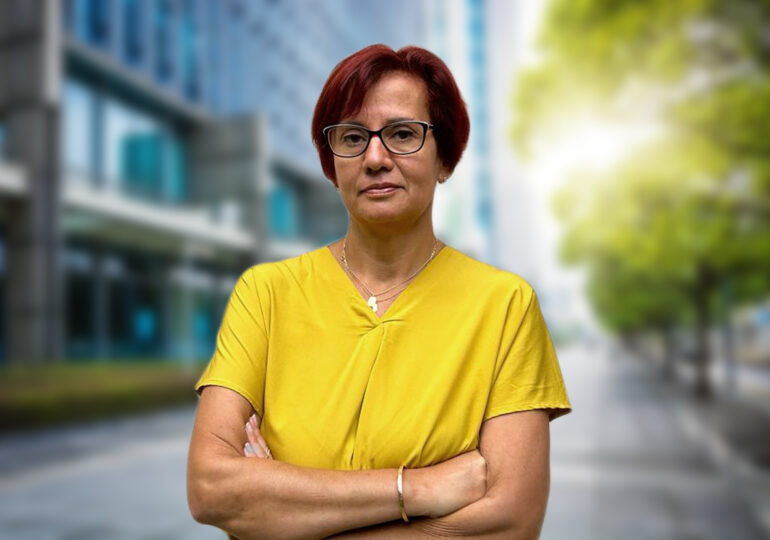Probably for the first time during her term as Minister of Education, Mrs. Deca came up with a proposal that, in my opinion, is correct and, in a way, courageous – installing audio-video cameras in schools, without the need for parental and teacher consent.
Of course, its necessity is also the result of the disastrous mandates of most of the Education ministers, including Mrs. Deca. But here we are also talking about the measures of this moment that need to be discussed. An exceptional moment calls for exceptional measures.
The Great Abandonment
Very bad things are happening in Romanian schools and not just accidentally, not just the highly publicized ones, but systematically. The environment is seething with all kinds of violence, physical, psychological, emotional.
It is the fault of the school, but not only. It is the consequence of what the Oradea teacher Mihai Maci defined some time ago as a generalized abandonment of roles.
The era of the free Internet poses unprecedented challenges, and in the face of them, both parents and schools have abandoned their role in relation to children.
What I notice about the parents with whom I have interacted directly or through various public positions are two categories of attitudes. Either total indifference towards the child, who grows like neglected vegetation, drawing conclusions as it pleases, taking models as it pleases.
Parents who have left the country, parents who work from morning till night, parents absorbed by social networks and the allure of devices "raise" children with great psychological and moral suffering, which they unload at school.
Or, on the contrary, ultra-protective parents who cannot accept any criticism of their child, cannot conceive that their child is not perfect, that they have made mistakes, find aggressive excuses for everything, allow anything, accept any form of expression of a completely "untamed", "unadjusted" personality. They take to school the model of supremacy and impunity with which they treat both their peers and teachers.
And the victims are the vulnerable ones, physically or mentally, those who do not howl with the pack, those who have scruples or are simply different even in their concerns. They need to be protected in an extremely hostile environment to stop or at least reduce their psychological and even physical mutilation.
Opposition
I understand that the opposition, including from the National Authority for Personal Data Processing Supervision and, as expected, from the unions, refer to the violation of privacy and private life?
What privacy and private life in the hallways of the school or in the classrooms? Yes, it is a discussion about toilets and, certainly, cameras are unacceptable in the actual cubicles.
The Ombudsman has awakened from a long slumber and, after endorsing controversial mergers and other decisions, has pounced with all his might on the cameras in schools, which he claims are nothing more or less than a "preconstitution of evidence". Strange definition...
If in the school where a child sprayed irritant spray because he was repeatedly assaulted by a group of classmates there had been audio-video cameras, would we have reached that incident? Because those cameras not only have a role in providing (not preconstituting) evidence in case of an incident, but also an inhibitory one which, over time, can even contribute to education.
Unions, in turn, fear that teachers will also be evaluated based on recordings. The law does not allow this, but from my point of view, considering what I hear is being told to children at school, for example, in religious classes and beyond, it wouldn't even seem like such a bad thing to me. After all, is the goal to identify violence, incompetence, laziness, or to pamper them?
As for the parents who oppose, I don't necessarily think they are concerned about principles, human rights, and children's privacy, but rather about the fear of what the recordings about their children could show and the responsibility they could attract for these actions.
We Like the Aggressor
Of course, theoretically it's as the Ombudsman says: "the focus should be on educating children/youth and not on their constant surveillance, which, in the long run, can have negative consequences on their mental development, in the sense that the habit of being monitored leads to the disregard of the right to intimate, family, and private life."
But we are in a critical situation where the victims of violence and abuse suffer long-term negative consequences. Aren't they important to the Ombudsman?
Our mentality, even in state institutions, is predominantly in favor of the aggressor, not the victim. The victim is to blame for provoking, for being too weak, for not knowing how to defend themselves, for being foolish, for who knows what. The aggressor is the strong one, the smart one, who imposes himself, as we would like to be.
Of course, ideally there should be no need to monitor children, ideally education should be sufficient, but clearly it is not at the moment. And in this extreme situation, the choice is between protecting the aggressor or the victim.
What should be extremely well clarified, in my opinion, is everything related to the storage and conditions of access to the recordings. Where, for how long are they stored, what happens after the deadline, who is responsible for them, including their deletion, what are the sanctions for any unauthorized uses.

